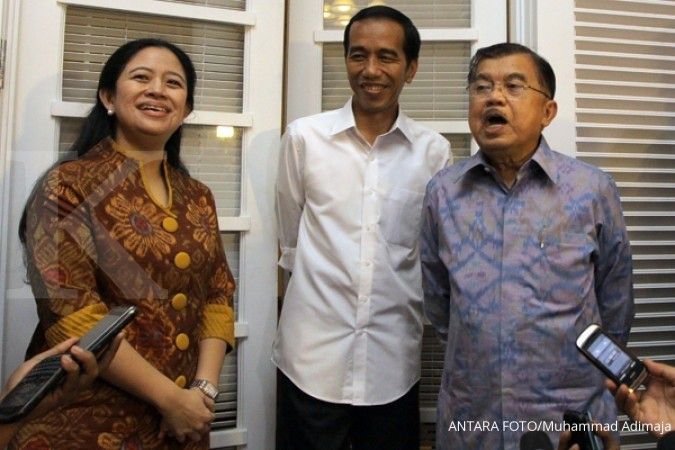JAKARTA. Indonesian Democratic Party of Struggle (PDI-P) politicians have clashed with president-elect Joko “Jokowi” Widodo on his commitment to raise fuel prices.
After failing to convince President Susilo Bambang Yudhoyono to share the burden of raising fuel prices, Jokowi, vice president-elect Jusuf Kalla and their transition team have said that they are ready to reduce subsidies and raise fuel prices by Rp 500 and Rp 3,000 (less than 30 US cents) per liter.
PDI-P central board executive Puan Maharani, who also headed Jokowi’s presidential campaign, said that the decision to adjust the prices would not be finalized before Jokowi’s inauguration.
Her words contradicted those of her mother, PDI-P chairwoman Megawati Soekarnoputri, who said that an adjustment was necessary to prevent a potential economic crisis.
Meanwhile, PDI-P lawmaker and central board member Maruarar Sirait said on Saturday that he still believed that fuel prices should be raised only as a last resort. “We have to be creative in looking for solutions [other than raising fuel prices]. If we look for another way and don’t find one, then we may consider this final option,” he told the The Jakarta Post. “The fuel subsidy should remain as long as there are still poor people”.
Andi Widjajanto, a member of the Jokowi-Kalla transition team, said on Saturday that Jokowi’s commitment was still on track and that the team was considering where saved subsidy money could be spent.
“[The money will be allocated] toward social welfare programs, which will be utilized as a safety net for those groups that are most vulnerable to the impact of inflation,” he told the Post.
Andi added that more money would be allocated to Jokowi’s priority programs, also known as Nawacita — a Sanksrit term for nine programs — authored by Jokowi, Kalla, Megawati and academics and professionals.
Andi said that the Kartu Indonesia Sehat (Healthy Indonesia Card) and Kartu Indonesia Pintar (Smart Indonesia Card) were among the programs targeted for increases.
The Smart Indonesia Card will complement the central government’s School Operational Assistance (BOS), according to Andi. He said that as the BOS eased the burden of tuition fees, the Smart Indonesia Card would help students purchase text books, uniforms and other items.
Andi added that Jokowi planned to implement the cards in two provinces, since budget limits prohibited him from launching the cards in all 34 provinces simultaneously.
Maruarar, however, maintained that Jokowi’s first choice should be cutting unnecessary spending.
“Let’s try cutting the wasteful spending by House of Representatives members first, as well as government officials, such as regents and governors,” he said, before suggesting that Jokowi could consider increasing taxes on cigarettes and alcohol to relieve the burden caused by the country’s heavy consumption of cheap subsidized fuel.
Maruarar, however, said that this was a personal opinion, declining to answer whether it mirrored that of other PDI-P members.
Executive director of Jakarta-based pollster Indikator Politik Indonesia Burhanuddin Muhtadi said that resistance to raising fuel prices did not represent a rift between the party and Jokowi and his transition team.
“It’s just an attempt to show [the public] that if fuel prices are raised, then it will be as a last resort,” he told the Post.
Burhanuddin added that Maruarar was trying to buffer the drastic change in the party’s policy on fuel subsidies to avoid accusations of a U-turn.
The PDI-P repeatedly rejected efforts to increase fuel prices by the Yudhoyono administration, often employing dramatic moves in the House, with lawmakers on more than one occasion walking out of discussions on fuel price hikes. (Hans Nicholas Jong)
/2014/07/23/1905466076.jpg)










